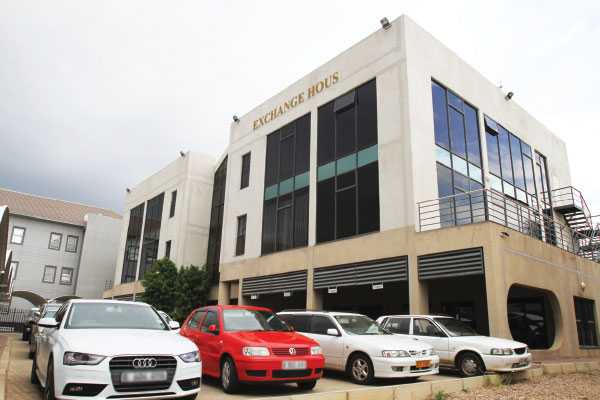“The stock market as a catalyst for growth”
A stock exchange is a considerable reflection of a country’s economic diversity. As a pivotal institution in the national economy, the Botswana Stock Exchange (BSE) is a habitat to most of the economy’s powerhouses.
This can be noted from the several sectors of the economy that are represented by the companies listed on the BSE, their sizes and a vast range of businesses they are engaged in. At present, the BSE is a host to 22 domestic companies representing subsidiaries of multinational corporations as well as truly home grown companies.
In this count, the appeal is in the manner in which the homegrown companies have managed to pursue outward growth opportunities. Amongst the home grown companies, 12 companies have presence outside Botswana. Further, most of these companies have largely leveraged on the advantages presented by a listing on the BSE - of raising growth capital - to pioneer their regional expansion. Whilst some companies have raised capital through an IPO, others have utilized avenues such as rights issues and issues for cash to fund growth initiatives.
One of the BSE veterans, by virtue of being one of the first 5 companies to have listed on the BSE in the formative year of 1989, Sefalana, has operations across 2 more Southern African countries (Zambia and Namibia) in addition to diversifying the Group’s business operations locally over the years. Indeed, the Group has made use of an assortment of funding options available on the BSE, such as rights issues and issues for cash, to enhance its coffers in funding regional expansion. Along that trajectory has followed several other companies that recognized the opportunity to expand their consumer markets beyond Botswana’s 2 million people.
A distinctively aggressive Sub-Saharan expansion drive by any BSE listed company has been by Letshego which has expanded from Botswana into East Africa (Uganda, Tanzania, Rwanda and Kenya), Southern Africa (Lesotho, Mozambique, Namibia and Swaziland) and has recently completed its entry into West Africa (Nigeria). All of these regional subsidiaries commenced after the company listed on the BSE in 2002, with the first one commencing in 2005 in Uganda.
Furnmart, which listed in 1998, has transitioned not only in the spread of consumer segments it caters for but also in its footprint across SADC (South Africa, Namibia and Zambia). It is also worth noting that Furnmart has in some cases made use of rights issues to fund new stores during its expansion.
RDC Properties, listed in 1996 and currently operating in Madagascar, recently undertook a rights issue on the BSE to expand into South Africa, Mozambique and Namibia. Similarly, other property companies have steadily expanded their operations beyond Botswana and particularly post listing, into regional markets; Turnstar (listed in 2002) is present in Tanzania; New African Properties has since expanded into Namibia since listing in 2011 and PrimeTime ( listed in 2007) now has properties in Zambia.
Subsequent to its listing on the BSE in 2012, Choppies has since penetrated South Africa, Zimbabwe, Zambia and Kenya. Cresta (listed in 2010) leveraged on its profile to attain funding for growth opportunities beyond Botswana and entered Zambia in 2012 through credit. Wilderness (listed in 2010) operates in 7 other countries and Chobe (listed in 1999) owns a subsidiary in South Africa.
Perhaps a distinctive transaction in respect of regional expansion and as such worthy of note is the intended acquisition of a stake in a company listed on the Malawian Stock Exchange by Botswana Insurance Holdings Limited (listed in 1991). This is the first time that a BSE listed company has intended to pursue growth by investing in a publicly quoted company across the border.
Why is it necessary to narrate all these growth stories?
The fundamental message from the preceding is that the BSE provides a platform for companies to catalyze their growth and create value for shareholders.
An array of funding options available to BSE listed companies is perhaps the single biggest catalyst of growth. Whilst these companies are well established and profitable with sizeable earnings, they tend to augment their coffers through corporate actions which are not readily accessible, at a relatively cheaper cost, to unlisted private companies.
It has to be hammered home that a company listed on the BSE has a much appealing profile than a similar unlisted company. This deduction follows as a result of the perception associated with the company’s conduct in relation to corporate governance. This feature feeds directly into the possibility of accessing funding at a reasonable cost. Moreover, once a company is listed it benefits immensely from its broad shareholder base in meeting its capital requirements through rights issues, issues for cash and even re-investing capital that could have otherwise been paid as dividends.
The message to unlisted companies, their founders, directors and management is that companies in Botswana need to see value in diversifying their revenue sources across different geographies.
In the wake of private sector being positioned as a driver of economic growth and economic diversification in Botswana, dependence on Government spending has to be diluted by other revenue streams. Botswana is known for its small population, and consequently its small capacity to absorb domestic products and services.
However, it has been demonstrated by majority of BSE listed companies which utilized the home base for raising capital that Botswana companies can successfully explore the abundant business opportunities in Sub-Saharan Africa. The demographic edge, economic growth, improving political stability and ongoing investments in infrastructure are opening up previously inaccessible markets across Africa.
* Kopano Bolokwe is BSE Acting Product Development Manager
The BSE will host its Inaugural Listings Conference on 10th March 2016 at the GICC under the theme “Opening the BSE to the Business Community – Creating Value through Listing”. The Conference features a presentation by Ms Celeste Fauconnier, Africa Analyst at Rand Merchant Bank South Africa, on the subject of “ From Botswana to Africa: what are the opportunities for local companies expanding into Africa”.






